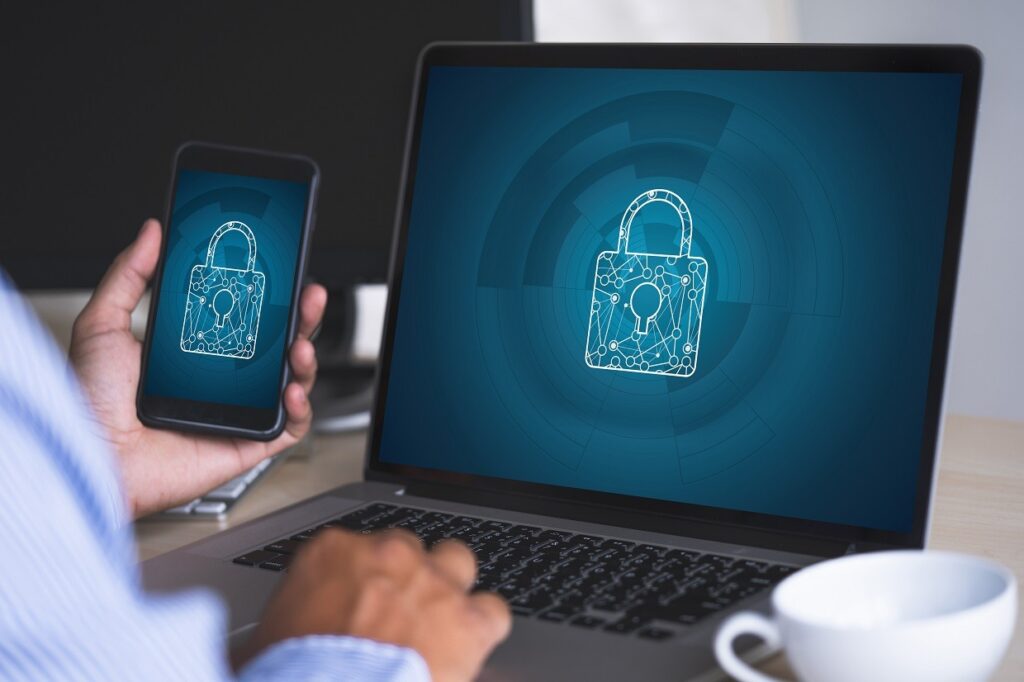
Having information at your fingertips has made life easier in many aspects. Unfortunately, the technologies that benefit the general public pose tremendous business risks.
Cybercriminals use the Internet and modern technologies to breach secure servers, steal valuable corporate information, hijack business programs or applications, and demand ransom payments. If they succeed, they can walk away with huge payouts.
A single data breach can cost businesses with less than 500 employees $2.98 million and $164 for every breached record, on average, according to data from IBM and Ponemon Institute. The amounts will vary according to the business size and the compromised data’s equivalent worth. However, the fact still stands: successful cyber attacks result in financial losses more often than not.
This is why cybersecurity is one of our top concerns. Every Meraki partner offers tech solutions with data protection and security in mind. With hackers becoming more sophisticated with their methods and targeting small and big businesses, protecting your business is necessary.
As a Meraki partner, one of the first questions we hear from our customers is whether cyber protection solutions will cost them a lot of money. It’s a valid question, considering many small businesses cannot afford sophisticated, enterprise-level security software. However, there are other ways to protect your business.
Here are our top tips on how to prevent cyber attacks on businesses without spending a large chunk of your capital or revenues on security tech:
Spending a few hours training employees about password hygiene can go a long way to protecting your business against hackers. Weak passwords are actually among the biggest threats to cybersecurity. According to LastPass, over 80% of confirmed breaches happened because of weak, stolen, or reused passwords.
Password management best practices include:
Help your employees practice proper password management by implementing policies supporting password hygiene. An example would be configuring all work emails to have a password reset every three or four months and establishing password parameters, like requiring numbers, special characters, and uppercase and lowercase letters for new passwords.
Software updates ensure programs and applications run smoothly, free of bugs and issues that can affect operations. However, more importantly, system updates keep your software and devices up-to-date on the latest security patches. They help ensure your network becomes less vulnerable to targeted cyber attacks.
A proactive security solution isn’t enough: you also need a contingency plan in case your data gets compromised. Invest in reliable cloud backup services to ensure your critical business data is protected in any eventuality, whether from targeted hacking or software/hardware failure resulting in corrupted data.
Hackers target small and medium businesses looking for the best opportunity to strike, such as when a target has a weak or non-existent firewall and has data valuable enough to fetch a high price through ransom or sale on the dark web. Don’t give these thieves and criminals the chance to destroy the business you spent years building up. Explore Cisco Meraki firewall options and invest in one that matches your price range and security needs.
These are the simple, inexpensive ways to prevent cyber attacks on businesses. However, if you have so much to lose to cybercrime and data theft, as a breach will irreparably damage your business’s reputation and cause customers to leave en masse, investing in more robust security solutions would be necessary.
An example of robust cyber security solutions that safeguard crucial business data is Cisco network automation. Cisco Meraki is known for its impressive capabilities, and one of them is network automation. This can be done using the dashboard API (Application Programming Interface), which links the Meraki cloud platform with Meraki-managed devices.
The dashboard API’s use cases are primarily bulk provisioning and configuring devices and networks, automating employee onboarding and off-boarding, adding new organizations, users, and devices, and more.
Cisco network automation helps improve network security by detecting abnormal network behavior and suspicious activities and alerting the appropriate personnel of potential security threats. Enterprises can also use network automation to enforce security policies and implement firewall protocols across networks and devices in just a few clicks.
The healthcare industry is a common target for cyberattacks because of the wealth of data healthcare providers and medical facilities store. Some will pay to get personal information, banking information, medical histories, and population demographic data regardless of where or how they were retrieved.
If you represent a medical institution or head a clinic that stores confidential patient information, learning how to prevent cyber attacks in healthcare will be crucial. A single breach in a facility with a large data repository can compromise patients, professionals, vendors, suppliers, and any enterprise that does business with said facility.
To prevent a worst-case scenario, here are some tips for preventing data breaches in healthcare:
Orient all staff on the business and legal ramifications of data breaches and how they can impact everyone. Provide training to raise awareness and develop cybersecurity skills. All healthcare professionals and employees must respect patient confidentiality and be aware of the potential consequences of security oversight. Most importantly, information security best practices should become second nature to them.
Adopting a zero-trust approach is one of the most straightforward methods of ensuring healthcare data security. This means that all users, internal and external, must present authorization and pass frequent validation tests to receive access to hospital records and patient data.
Data exchanges within and outside hospitals are unavoidable, but there’s always a risk of interference and hijacking as data packets travel between networks. Encryption lowers the chances of data theft by scrambling data packets into a secret code that can only be decoded and unlocked by the recipient’s unique digital key. So, if a Meraki partner recommends upgrading your network security with encryption, consider taking the offer.
All devices that connect to a hospital’s Internet can become a channel for malware and other threats to penetrate its secure systems. So, enforce security policies about linking personal devices to the hospital network and bringing work equipment and laptops home.
Protecting your business from determined cybercriminals is always challenging. However, you can make it harder for them to succeed. The mere presence of known cybersecurity solutions can deter many hackers from targeting a business or facility, so it’s worth looking into network security solutions and firewalls that protect against brute force attacks (trial-and-error methods to guess passwords and encryption keys), hacking, ransomware, and other security threats.
Stratus Information Systems, a Cisco Meraki partner and cloud network specialist, can provide security solutions to protect your business. Whether you run a commercial enterprise, corporate office, or healthcare facility, we can recommend Cisco Meraki products that fulfill your security needs.
Find out how to reinforce cybersecurity for your business. Contact us today.

Stay informed about our newest releases and updates